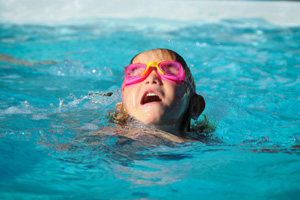
If your child is visiting a friend or a neighbor, it is only natural to worry about their wellbeing. After all, what if they suffer an injury because they were not under your supervision? How can you be sure your child is safe? If your child slips and falls in a swimming pool, you may wonder who will be liable for any medical bills, property damage, and other expenses as a result of the accident. Here is everything you need to know.
Understanding Liability After a Pool Injury
Determining liability is not always easy to understand as it depends on several factors, including:
- Who owns the pool?
- Does it belong to an individual or a business?
- Are there signs posted warning children not to enter the water?
- How old is your child?
These are just some of the questions your lawyer will discuss with you when determining liability and whether you have a case.
Looking at Property Owner Liability After a Pool Injury
If your child is injured at another person’s home, it is important to know what legal responsibility falls upon the homeowner. This is especially true when children are involved in accidents while playing outside.
There are certain responsibilities that fall upon the homeowner, including maintaining safe premises, keeping dangerous items out of reach, and providing adequate lighting. In addition, the homeowner must keep the area free of hazards such as broken glass, slippery surfaces, and uneven terrain.
In some situations, the homeowner may be able to avoid liability altogether by proving that they acted reasonably under the circumstances. However, even if the homeowner did everything possible to prevent the injury, they may still be found liable if the injury resulted from a defect in the property itself. A defect includes anything about the property that makes it unreasonably dangerous. For instance, a pool that is too deep according to local building codes or a tree limb hanging over the edge of a deck may constitute a defect.
If the homeowner fails to warn others about the danger, they may be held personally liable.
Negligence
In some states, homeowners are required to install fencing around their pools to prevent young children from entering. In others, they must post signs warning people about the dangers of drowning.
But what happens if someone gets hurt inside a home pool? Can you sue the homeowner for negligence? The answer is yes. The homeowner knew or should have known that their pool posed a risk of injury to children.
Willful or Wanton Misconduct
There is a difference between ordinary negligence and willful or wanton misconduct. Willful or wanton misconduct occurs when the defendant knows that people cannot appreciate the risk involved or does something reckless without caring whether someone gets hurt.
A person acts willfully or wantonly when he intentionally performs an act recklessly in disregard of known or obvious danger. To establish liability under this theory, a plaintiff must show that the defendant acted with conscious disregard for the safety of others.
Inadequate Supervision
The law recognizes that parents are responsible for supervising their children while playing outside.
This can be true even if the child is supervised by another person. If the parent knows the child is likely to be harmed, they must take steps to protect those others.
Consult a Pennsylvania Premises Liability Lawyer at Rubin, Glickman, Steinberg & Gifford Today
If you or someone you love was hurt while at a public or private pool in Pennsylvania, call our skilled personal injury lawyers at (215) 822-7575 or submit our contact form to schedule your consultation. We offer free consultations and have helped thousands of clients recover damages for their injuries.
Our team of legal professionals will review the facts surrounding your case and advise you about whether you have grounds for a successful lawsuit against the responsible party. Rubin, Glickman, Steinberg & Gifford is here to help you assess liability and to file a lawsuit against the liable party.









